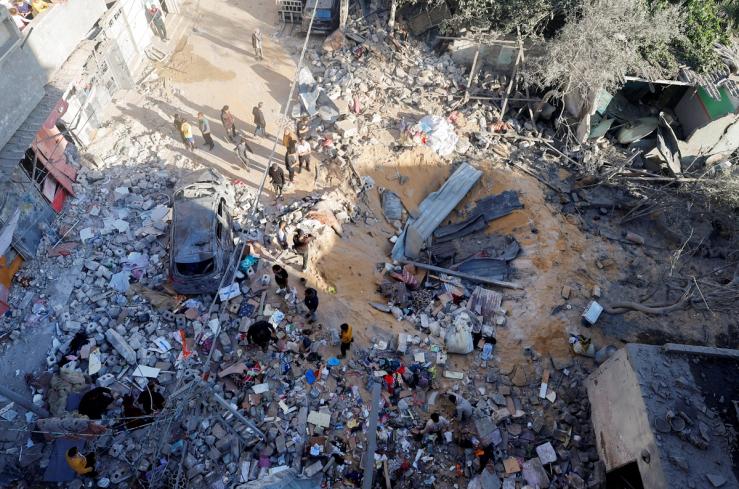The News
Israeli officials have strongly criticized the US decision to halt shipping some heavy bombs to Israel. The freeze could encourage Hamas and indicate there is a growing divide between Israel and its allies, they said.
“Any pressure on Israel is interpreted by our enemies as something that gives them hope,” Israel’s UN envoy told KAN public radio. Senior Israeli officials told their American counterparts the move could also jeopardize the already perilous hostage negotiations, strengthening Hamas’ position, Axios reported.
Israel’s far-right national security minister Itamar Ben-Gvir went further. In a post on X he wrote “Hamas ❤️ Biden.” And in an interview with The Wall Street Journal, Ben-Gvir said Trump would have handled the war better than Biden, a comment that drew quick criticism from centrist and opposition Israeli politicians.
The US paused the shipment of “high-payload munitions” to Israel due to concern over the civilian consequences of a major ground operation into Rafah. US President Joe Biden said that if Israel attacked Rafah, the US would stop providing weapons that could be used in the assault. However, the US would keep providing defensive weapons, including Iron Dome interceptors. “We’re not walking away from Israel’s security. We’re walking away from Israel’s ability to wage war in those areas,” Biden said on CNN.
SIGNALS
US bombs are linked to extensive civilian casualties
The weapons at issue include 2,000-pound bombs capable of leveling entire city blocks. Human rights organizations have said these munitions have already caused extreme civilian harm in Gaza. The bombs, which can be lethal at a range of more than 1,000 feet, have been “linked to previous mass-casualty events throughout Israel’s military campaign in Gaza,” The Washington Post reported. “The use of 2,000-pound bombs in an area as densely populated as Gaza means it will take decades for communities to recover,” John Chappell of the Center for Civilians in Conflict told CNN. Indeed, the bombs are rarely used by Western militaries in urban areas because of the scale of civilian casualties they can inflict.
Israel surges as fears of an all-out assault grow in Rafah
The Israeli military presence outside Rafah grew on Thursday, as the IDF fired at positions inside the city, while Hamas said they hit Israeli positions, too. Inside Rafah, thousands of Palestinians are bracing for a large-scale attack. “Last night was very violent, with nonstop bombardment and the boom of explosions and ambulance sirens,” a displaced man from the north of the Gaza Strip told the Financial Times. Israel has told civilians to leave Rafah, but only 80,000 of the more than 1 million civilians in the city have fled, a UN agency said. Aid groups said Israel has told people to go to areas that can’t actually accommodate them, with the head of Mercy Corps describing “tents stretched endlessly under scorching sun with no relief in sight and no electricity, water, or aid.”



